GLOBAL RESTAURANT EXPANSION WITH BC PARK | E014 PODCAST
LISTEN TO THIS EPISODE ON ALL STREAMING SERVICES
ABOUT THE GUEST
BC (Byung Chul) Park sits down with George Stroumboulis in Newport Beach, California on the Invigorate Your Business Podcast.
BC (Byung Chul) Park is a 20+ year restaurant industry veteran with international experience working for brands such as Pieology, California Pizza Kitchen, and several others. As the CEO of Pieology China (under ownership of TZG partners) BC helped establish the brand in China - operating both company-owned and supporting the franchise model as the master franchisee for mainland China.
BC is an expert in fast-casual restaurant expansion in international markets, establishing stable infrastructure for growth in all sectors of the business including operations, training, finance, marketing, supply chain, real estate, design and construction. Learn more about how he has helped American brands expand internationally and driving profits to the corporation.
BC holds a Bachelor of Applied Science (B.A.Sc.) focused in Cellular and Molecular Biology from San Francisco State University.
LINKEDIN: https://www.linkedin.com/in/bc-byung-chul-park-5bbba04/
“The lockdown in China wasn’t that way. Lockdown in China, there’s a sticker out your door, and if you open that sticker, you’re going to quarantine center.”
MEDIA RELATED TO THE EPISODE
BC Park sits down with George Stroumboulis in Newport Beach, California at the Ideoli Group offices on the Invigorate Your Business Podcast to talk about all things restaurant expansion, franchise development and growth into new global markets.
BC Park sits down with George Stroumboulis in Newport Beach, California at the Ideoli Group offices on the Invigorate Your Business Podcast.
BC Park is an expert in the development of restaurant brands in international markets. Living in Shanghai and traveling the world.
George Stroumboulis talking international business with his friend, BC Park.
ABOUT THE “INVIGORATE YOUR BUSINESS” PODCAST
The Invigorate Your Business with George Stroumboulis podcast features casual conversations and personal interviews with business leaders in their respective fields of expertise. Crossing several industry types and personal backgrounds, George sits down with inspiring people to discuss their business, how they got into that business, their path to the top of their game and the trials and tribulations experienced along the way. We want you to get inspired, motivated, and then apply any advice to your personal and professional lives. If there is at least one piece of advice that resonates with you after listening, then this podcast is a success. New episodes weekly. Stream our show on Spotify, YouTube, Apple, Amazon and all other platforms.
ABOUT GEORGE STROUMBOULIS
George Stroumboulis is an entrepreneur to the core, having launched several ventures across multiple industries and international markets. He has held senior-level positions at progressive companies and government institutions, both domestically and internationally, building an extensive portfolio of business know-how over the years and driving profit-generating results. George’s ability to drive real change has landed him in several media outlets, including the front page of the Wall Street Journal. George was born in Toronto, Canada to his Greek immigrant parents. Family first. Flying over 300,000 miles a year around the world puts into perspective how important family is to George’s mental and emotional development. With all this travel to global destinations, the longest he stays even in the most far-out destination is 3 days or less - a personal rule he lives by to make sure he is present and involved in family life with his wife and three daughters. To read about George’s global travels, stay connected with his blog section.
STAY CONNECTED WITH GEORGE STROUMBOULIS
STREAM & LISTEN TO THE PODCAST:
SPOTIFY: https://open.spotify.com/show/1rW2CmxQoiJNEPOZupJlvd
YOUTUBE: https://www.youtube.com/user/Stroumboulis
APPLE iTUNES: https://podcasts.apple.com/us/podcast/invigorate-your-business-with-george-stroumboulis/id1607693240
AMAZON MUSIC: https://music.amazon.com/podcasts/8fc03929-71b3-483a-a64e-153e30b3d462/invigorate-your-business-with-george-stroumboulis
iHEARTRADIO: https://www.iheart.com/podcast/269-invigorate-your-business-w-92187370/
STROUMBOULIS SITE: https://www.stroumboulis.com/podcast
PODCAST SITE: http://www.invigorateyourbusiness.com
OTHER SERVICES: GOOGLE, PANDORA, OVERCAST, CASTRO, CASTBOX, PODFRIEND, PLAYER.FM, PODCASTADDICT, PODCHASER, PODCASTINDEX and RSS FEED.
FOLLOW GEORGE STROUMBOULIS:
INSTAGRAM: https://www.instagram.com/georgestroumboulis/
YOUTUBE: https://www.youtube.com/user/Stroumboulis
LINKEDIN: https://www.linkedin.com/in/Stroumboulis/
TWITTER: https://twitter.com/Stroumboulis
FACEBOOK: https://www.facebook.com/georgestroumboulis
TIKTOK: https://www.tiktok.com/@georgestroumboulis
CONTACT GEORGE DIRECTLY: https://www.stroumboulis.com/connect
FULL SHOW TRANSCRIPT
BC Park: Like you mentioned just now, you're locked down for the two months, you were able to go to the beach. You're able to go out to the playground.
George Stroumboulis: People were yelling at us.
BC Park: Right. But you're able to, you have the ability to do that if you wanted to, right? The lockdown in China wasn't that way. Lockdown in China, there's a sticker out your door, and if you open that sticker, you're going to quarantine center.
George Stroumboulis: If you love international business, then today is an episode for you. I sit down with BC Park. He is an expert in the food and beverage arena. When it comes to American brands expanding internationally, BC has done it all, whether it's in China, Southeast Asia, the Middle East, or Europe, he has helped restaurants expand internationally from start to finish. Enjoy this episode of the Business of International Restaurant Expansion.
My name is George Stroumboulis and I'm extremely passionate about traveling the world, meeting new people, and learning about new businesses. Join me as I sit down with other entrepreneurs to learn about their journeys. This episode of Invigorate Your Business starts now.
I'm excited about this one because I'm talking with someone who's become a friend and someone who's like truly international when we talk about international business. So BC Park, Byung Chul, right? Is that the right pronunciation?
BC Park: That's as close as it's going to get, yeah.
George Stroumboulis: As close as it's going to get. So you're in from Shanghai.
BC Park: Yes.
George Stroumboulis: But your background is, you're an American born, grew up in South Korea and just have an international mindset. So just talk to us, tell the listeners who you are where you're from.
BC Park: Sure. Yeah. I've had a very fortunate international background. I was born in Seoul, Korea, like you said. But very early on in my childhood, I was able to be exposed to a lot of different international market because of the background of my dad. He was in the international background for operating factories for manufacturing. So I was exposed to a lot of the countries at the time that was very favorable for low labor cost. So, very early on, I was able to go to Dominican Republic, lived in Santa Domingo for like three years. And then I went to Sri Lanka, sometimes in China. Spent some time in Singapore, Hong Kong, India.
George Stroumboulis: At what age is all this?
BC Park: This is all probably happening in the first 12 years of my life.
George Stroumboulis: Wow.
BC Park: So, at some point when I counted, I think I changed schools like 12 times before I reached high school. So yeah, I was exposed to a lot of different cultures, a lot of different countries, a lot of different backgrounds while I was very young at age. So, didn't necessarily like it so much at the time. But then after I went to school, I settled down here in California, in the Bay Area in San Francisco. I was there for about 17 years. And I entered myself into a brand called California Pizza Kitchen, which is one introduction to the restaurant industry. And I was very fortunate with the brand where I was exposed to an opportunity out in China to operate in open restaurants there. So I moved myself to China about 13 years ago, back in 2010. And that opportunity really opened doors for me to be involved with the growth of the international business with that particular brand, where I was managing 12-13 different countries supporting our partners there to operate and open new markets, new stores, becoming more scalable for that particular brand. And since then, I've worked with a couple of other brands after that to do the same. But yeah, the whole CPK experience really allowed for me to be able to see just international business from a brand perspective and what we need to do to adapt, adjust, and allow ourselves as well as our partners to be able to be successful in any of the markets that exist in. So I think that that really opened a lot of my own personal views on things as well as experience. So, yeah, that's kind of my background.
George Stroumboulis: Yeah. Your background. I met you in that California pizza kitchen world, right? As a vendor. First met you physically in Shanghai, came in contact and we started looking at stuff. And over the years just looking at projects, you actually, through your work, brought us and created, made us international as a company. Like our first international opportunity was in Abu Dhabi to do one of your stores and outfit the entire space with our furniture. So, thank you for that. And that just kind of opened it up on, oh my gosh, how are we going to figure this out early on in our career? We figured it out. You gave us the opportunity everything went extremely well. And then we just grew from that. And now we're all over the place. So, your background though, so your family, factories overseas, all this stuff, you’re married, your wife's family, similar background, international commerce, all that stuff. It kind of blows my mind, right? You've helped take American brands internationally into markets that don't even exist. It's not like, Hey, BC, we want to be in Australia. These are the contacts. Just make sure it happens. You need to go there, find entrepreneurs, people with money they want to invest, get them interested in the brand. And then there's 10 plus different elements to that that take place. So when someone's opening up a franchise, an American branded restaurant, what are the steps, because you're so involved from the actual person who's going to invest the money, the real estate, the operations, the construction, the outfitting, like, there's so many elements that come through you and your team. Just walk us through that process, you know?
BC Park: Yeah. I mean, for any brand, I feel like there's a lot of interest especially if you're a successful brand in a market that you started in, there's going to be a lot of interest from a lot of different people around the world to be able to bring that particular brand into their market of interest. So you will have a little bit of both where you get a lot of contacts and questions and people reaching out to you to say, Hey, I'm interested in this market. I live in this market you know, I have a business. I want to open your particular brand in my market. What are the steps? I mean, that's kind of where a lot of the initial conversation starts for somebody who wants to franchise. But for international, for any brand, I feel like it has to be more scalable than just the one-off. But there are brands that are more one-off, right? Which typically involve higher CapEx, higher investment, and something that's more, not as scalable. So that's a little more challenging. But if you're looking at something that's a little more scalable, that's a little more multi-unit kind of an operation, every company has their own requirements as to what type of a partner that they're looking for. But in order for especially a restaurant business to succeed, I think typically for a lot of the restaurant businesses, they're looking for somebody with a little bit of an operational background. Somebody who knows how to operate a restaurant, at least have some of that experience under their belt. And it really allows for a brand to be able to work with that partner to understand what the brand needs to do to be successful in that market. And will rely heavily on not only their own knowledge of what the brand values are, but also what the partner's knowledge is of that particular market to be able to adapt and adjust to that market so that they're successful in that particular market, staying within the boundaries of the brand itself. So, initial conversations are a lot about understanding who the partner is and as well as understanding what the market is. You know, some of the companies will prioritize which market they want to enter because they've already done the due diligence to know which markets are more feasible for that particular brand to get into. And then the next step for them is to find the right partner for that market. Some companies will have amazing partners that they know that they want to work with, and they'll work their way into certain markets with those partners because they know that the partner themselves are savvy enough to understand what they need to do to be successful in those markets.
George Stroumboulis: So, they already know who that vehicle's going to be for that market.
BC Park: Right. So, there's a few franchise companies around the world that are very, very good at what they do, and they have multiple different markets. And typically those companies would want to work with those partners because they know that their franchising standards are very, very high and difficult to execute. And without those expertise and without those connections and networks, it's not going to be as smooth sales as for somebody who's maybe smaller or lacking experience or just focusing on one market. So if you're looking at Middle East, like companies like Alshaya Group, it a great company that everybody would want to work with. If you're looking at Korea, you want to be involved with like SPC, you want to be involved with Maxims for Hong Kong and China.
George Stroumboulis: And these are names of –
BC Park: Yeah. So those are kind of the big franchise companies that anybody would want to work with. And the partners are also very picky. Like, they're going to be very picky about which restaurants they want to work with, and the financials, the brand success and all of that would have to be in line for them to be one to work with those guys. So I think typically that's one of the reasons why you see Starbucks working with like, the biggest company, in any of the markets that they enter because they know that they need that scalability, they need that financial backing, and they need all of that experience to be able to be successful in their markets. So yeah, that's kind of the whole step. And once we identify a partner, and once we start to talk to that partner, we'll start to dig a little deeper into what their goal is and what their passion is, and what their vision is for the brand for that market. And if the two align from both the partner side as well as the brand side, then that's when you start looking into the next steps.
George Stroumboulis: Okay. So on that point, if I am the owner, the parent company and this partner has just deep pockets, right? Do a lot of times you just align with that and say, hey, they have the financial backing and that's the main factor.
BC Park: No, I think there's a lot of money out there and you have to find the right partner. At the end of the day, how passionate is that partner about your brand? Because if that passion's not there, then doesn't matter how much money you have, you're just going to be throwing money and somebody else is going to do the job. You really need somebody who's going to buy into your entire vision of what your company's wanting to do for your market. Not just the money. And ultimately, you want that partner to be really a partner rather than just an investor. You want that partner to be the voice and the representation of you in that market. So you want to find the person who is passionate about your brand as much as you are in your own market, in your own company. And if you don't have that, I've seen plenty of brands that have the financial backing partner that just isn't the right fit for that particular brand. So everything plays a role. It's not just the money and that needs to be all co-aligned in order for the brand to be successful.
George Stroumboulis: Okay. So, you mentioned vision, right? And we're not just talking about one brand that you've helped, you've helped several brands from the US expand overseas. Right? And we'll even talk about when you were CEO as well, and for a big brand over here, but when you talk about vision, it doesn't matter in your space, any space, people throw a lot. What's the vision of the company? It could be cliché, it could be a term that people just throw out, and there really is no vision. Talk to me about some of the brands that you've helped expand internationally, the perceived vision on what you thought that brand was versus in execution, it's different internationally and how you have to adapt. Like, is having a clear vision important? And is it followed internationally versus not having anything and just opening up restaurants?
BC Park: Yeah, I mean, I lived in a country where I think every business looks at it as a huge opportunity in terms of scalability. Everybody wanted to enter China, especially 10 years ago when I first got there. They just saw it as a market that just needed to be entered and needed to grow. And because of the population, because of the money, because of the rapid speed that it was growing in, every brand was being very aggressive with their vision, with their goal, with their development plan. So you'll see brands that say, oh, we're entering China. We're going to open 500 units, or we're entering China, we're going to open a thousand units. That's kind of their vision, their goal, their development. But as important as that is for investors, it's also important for brand to recognize that they're, I feel like it's important for the brand to recognize what needs to be done in order for that to happen. And a lot of the times, especially for a successful brand in their own personal markets, they just feel like they just want to go in and open the brands exactly the way they are in their markets. And when they are brands that have a little more international experience, and they're open to adapting and adjusting and fitting their brand into the markets, a lot of the times brands would use terms like flexibility or open-mindedness, and that's definitely needed for any brand in order for them to be successful in their markets. But as I was telling you just before this conversation, personally, with the brands that I've worked with, something that lacks in my personal experience is the brands for themselves to look within their own brand to say, what is an absolute must for us, or what makes us who we are and what is a non-negotiable for us? What is it that makes us valuable in our market? And there's a lot of opinions within the brand about what that is. But a lot of the times from the brands that I've worked with, they can't really back that opinion with a solid data, not only for their own market, but the market that I want to enter. So they haven't done enough due diligence to understand what exactly is making them successful in their own market, and whether that point or those points would actually transfer into market that they weren't interested in getting into. And if you have that, then you can identify what you can be flexible with and what you can be more open-minded about. And if those two things don't marry together well, then you're either going to lose the identity of your brand in the market that you're going to enter, or you're going to be forcing somebody to do something that doesn't make sense in that market. So I think for me, working with brands, from my experience in being exposed to a lot of brands internationally and seeing which brands have been very successful, and seeing some of the brands that have failed, even the very successful ones in US market or other markets, that's kind of what I've learned in terms of their vision, execution and sometimes trial and error. All of those things kind of are, for me, my own personal opinion and from what I've seen is that kind of a pipeline that I've seen them work through. So yeah, that's kind of how I see the vision and execution.
George Stroumboulis: Absolutely. And I've seen it firsthand with you with different brands, like the level of involvement, right? It's impossible to go into a new market, to open up a new restaurant or store, whatever it is and just manage, like you from the negotiations with the people putting in the money right down to the toppings on whatever that may be, to how it's packaged out the door. You know, talk to us about that. Like, you're not just from a high level doing that. You get down to the weeds and you're negotiating in local markets. And kind of segue into how do you adapt to local culture, taste, religions, politics, when it comes to food? Does that differ from HQ and what they're doing back home?
BC Park: Yeah, I've been fortunate enough to work with a lot of brands that allowed me to be very hands-on with a lot of different aspects of the business. So like you said, normally typically for a bigger company, you wouldn't be involved in every single one of those business decisions. You focus probably on one or two. But for me, I've had the exposure to be able to learn and grow and experience a lot of those different aspects of the business. So for me, what I think is very valuable, again, one is identifying the right partner. You're going to rely on your partner a lot, to hear from them exactly what they think is valuable in those markets, and what we need to do as a brand in order for those brands to be successful within the boundaries of what the country allows you to do or what the customers in that country is looking for. But however, you cannot just take what they're saying as true; you need to go and experience it for yourself. So one of the things that we initiated when I was part of the companies were to have ambassadors or to have business directors that live in the markets that they actually support. So we had a gentleman in the Middle East who was living in Dubai, and he was supporting the partners in Dubai, India, Saudi Arabia, Qatar, Kuwait, any one of those markets that we were nearby. By him living there, he not only as a business consultant, but also as a consumer, is able to experience exactly what he needs, what he likes, and is able to be face-to-face with daily life, what other people are going through. And in terms of marketing, what's effective, what's not effective to himself, as well as to others, pallet what's available, what's not available, sourcing ingredients. He's able to see by going to supermarkets himself and seeing day-to-day life what is available, what's not available, what's expensive, what's cheap, what's affordable. So it was, some of the initiatives that we had was to have an actual ambassador that live in nearby cities or countries to be able to get to those countries more often, more frequently, and live the day to day life that the consumers live to be able to understand better and support the partners better. So that really allows for a very open conversation with partners to say, okay, these are the challenges. And when you hear of those challenges from your partners, you're not second guessing. You have multiple sources that you're hearing that from and you have multiple support structures where you can actually start to do things that make sense. And that's huge for any brand. So you'll see a lot of the bigger companies that have subsidiaries outside of their own country and they have, they're selling to build offices out there to be able to support the partners around there. And I think that's one of the reasons why is that they can be closer time zone culture and starting to be able to be more accessible to the markets that they need to get into, to support whether it's from looking at ingredients, like you said, for toppings, does it make sense in terms of pallet? Does it make sense in terms of cost? Does it make sense in terms of culture? You know, stuff like that. So all of that kind of plays in hand in real time. And when you have an emergency, when you're building a restaurant, it's much harder to get there when you have to cross any of these big oceans, right? So if you can just hop on a plane and be there in an hour and a half and be a true support to your partner, that's a huge asset that your partner's going to value.
George Stroumboulis: Absolutely.
BC Park: And it's ultimately at the end of the day, the support that you want for your own business to be represented in those countries, so yeah, those all play in hand when it comes to opening restaurants or opening any businesses, really.
George Stroumboulis: Yeah. So progression, right? We always want to be progressing as humans. We want to be learning, we want to be just getting better, right? Be better today than we were yesterday and so on. From where you started in this space from San Francisco, moving overseas to numbers wise, biggest market in the world, most desirable for brands to expand. You must have fucked up along the way or made mistakes and the version you are today having been a CEO for a brand over in China. What are some major blunders along the way that you've learned from that, hey, typically this is how I should not react or not interact for certain cultures. Like what are some lessons we could learn from based on your dealings?
BC Park: I think restaurant business in general, it's very testing. There's a lot of different components of the restaurant business that tests your patients, it tests your stability. It tests a lot of different stress points in your life. So I've had, not just the international market, but in terms of just in restaurant and business, I've had a lot of experiences where I've tested my own limits in terms of my stress level and my breaking points. And you know, sometimes you just need to step away and kind of take a deep breather and see what that was. But at the same time, going to the international market and add a challenge with that conflicts with different cultures and different experiences. So the biggest thing that I've learned is that you just have to be very open-minded about what that culture is going to be like, and not have any stereotypical or any preset notion of what your expectation is because no matter what, I think you're going to be surprised just like how you are when you open a new restaurant. So after you open, you're going to find out a lot of things about that restaurant, no matter how much you prepare before. So I think having a mindset of just being able to just be open to a lot of different things and try to understand why people are doing what they're doing and where they're coming from, rather than being frustrated or being upset at the fact that they're not seeing things your way, that's huge. And if you have that, I think a lot of those frustrations that you feel will kind of go away. And I think expectations of what you're expecting those people to be like, or those situations to be like if you're open to a lot of the ideas, those expectations just don't mean anything. So yeah, I think that's the biggest lesson I've learned. I've definitely made a lot of mistakes, especially entering into very stressful environments where we're opening restaurants and we have thousands of people walking in the door at midnight, and you're dealing with a lot of people that are very hungry and very upset and very frustrated at long hours of waiting. So those kind of things just kind of put you in a position where you have to be able to be patient and calm. And in early years of my career, I maybe not was that way. So I've definitely messed up quite a time. But yeah, as you have more exposure to these types of experiences, you just learn to kind of be calm and understand and talk to them and communicate with them in a manner that that's more open and more honest and more caring for that particular background. So yeah, we've fortunately and unfortunately learned a lot of lessons through a lot of our partner’s investments and I think sometimes with domestic brands, they use the international partners to kind of learn their lesson. And for those companies who are able to support those partners together and invest the money and people and the time together to learn that lesson together are the ones that are successful. And if you're just relying on one person to kind of be your Guinea pig to figure out what's going on, I don't think that's very fair. And a lot of the times, partners will see right through that. And they'll be frustrated as well. They may not voice it right up to you, but they're going to be frustrated because it is their time, their money, and their people that they're investing. So yeah, ultimately, you just have to be a true partner rather than a seller and a buyer.
George Stroumboulis: So, that's great feedback. What are some things that you've seen from American-type restaurants, right? The footprint, lease terms, all that stuff versus international? Because on some of the projects we've worked on together, three year lease overseas in Asia with a fraction of the footprint, what are some main differences because that affects how much they're going to invest in that actual store? Because to do a build out and possibly three years from now, you're not going to be in that location. We're typically over here, you're signing longer leases or you own the building. What are some main things that stick out that are totally different here versus overseas?
BC Park: Square footage of the restaurant is definitely huge, especially for American brands, especially casual dining brands. Just the sheer size of the restaurants and the investment to build those restaurants. But like you said, because the lease terms are longer the restaurant businesses here have opportunity to make those money back and then some, whereas in international markets, like you just mentioned, square footage is just very limited. You don't have the opportunity to build 6,000 square feet restaurants in Hong Kong, it just doesn't exist. So, you have to then start to look at scaling down your size. Now, like we discussed before, if that is your core value for your brand, and if that's something that's an absolute must for your brand that's non-negotiable, then you really need to reconsider Hong Kong as a market. So, are you able to adapt the size? And if you are, then everything else starts to impact. So you have smaller restaurant, you have limited number of seats, are you going to have higher turnover with your service? And if you can't execute higher turnover, then now it's going to start to impact your store level sales. What's the consuming per person average for those restaurants? Is it the same as US? Is it going to be different? Then what are the, I mean, it can get down to the table size, the plate size, the portion size of your dishes which impacts your actual retail value of those issues. You know, all of that, it all plays into what a restaurant business translates from where you are in US wise, domestically, and then to international markets.
George Stroumboulis: That's the exciting part though. Sorry, like right down to table size and what you can maximize, like the metrics, you know, when it comes to restaurants, forensically, you can look at the cost, right? The daily sales, the monthly sales, and you can derive this is where we need to improve and so on. Like, it's just impressive that you're able to do that.
BC Park: Yeah. I mean, you're faced with that when you start to operate a restaurant, you see those things right away. You're expecting for a domestic restaurant, especially a casual dining restaurant that's coming out of the US. You typically see consumers that would order one plate per person. You would have your own meal, you might share an appetizer, but you have your own meal and you have your own mains. But when that brand goes international on the first day, you'll recognize that, oh, it's not just the appetizer that's shared. Everything is shared. So then once you start planning that out, then you start to see, okay, do we need bigger tables because they're going to order more things, but the portion sizes are different. So do we need smaller plates? So now that they're sharing, now I need sharing plates. So these things are things that by making one business decision to be able to adapt to a certain market, a lot of other decisions have to be made because of that decision.
George Stroumboulis: Chain reaction.
BC Park: Right. It's just chain reaction, one after another. And all of that needs to be incorporated into your overall business model for you to have the ultimate decision to say, okay, financially in terms of investment, in terms of the CapEx, in terms of the ROI, this makes sense, we need to do this. And then ultimately, is this the way we want to represent our brand in that market? Because a lot of the times for the brand, it's not just about going into the market and opening five stores and making some money. It's also about, is that brand being represented well for you in that market? Is that something that you're proud of? And those decisions need to be made prior to opening. And unfortunately, for a lot of the businesses, those recognitions don't come until after you've already opened, which is why you see some of these brands failed in the market. And which is why you also see some of these brands reenter the market that they already failed in because they learn those things, they're able to adapt and adjust and reenter. And sometimes that are successful and sometimes they're not.
George Stroumboulis: Right. So, unrelated to your work, what are some brands internationally that have just nailed it from an expansion? Obviously the McDonald's, Burger King, Starbucks, those are the obvious ones, but are there brands, again, not affiliated with you, that you've seen just killing it internationally? And have you seen other brands that have just gone in and failed miserably in markets?
BC Park: Yeah. I mean, I think QSR brands in general, especially coming from domestic US, have a higher chance of succeeding in international markets because it's already in a smaller footprint. In terms of scalability with procurement and purchasing, you have the scalability to be able to support that type of growth and cost effectiveness. And it's mostly when you're a QSR, you're a single dining experience.
George Stroumboulis: And QSR, Quick service?
BC Park: Quick Service Restaurants. So like the Taco Bells or the McDonald's, the Burger Kings, those will be considered to be the QSRs. As you go to higher scales in terms of size of the restaurants and become casual dining or even fast casual, which is a concept that's not necessarily as adapted just yet in the international market, or even fine dining, more and more of these complications start to come in. So those brands are maybe not as scalable. You'll see a lot of the brands that are successful, but there may be one-offs or two, three at the most in those regions or the markets. The brands, I mean Starbucks, McDonald's, Burger King any of these big brands you see a lot of them be very successful in any the markets. Some of the other brands that you've seen that are successful as late is also like Shake Shack. Shake Shack has done a great job of supporting their partners in their local markets to be successful in those markets, not just from what I know also is Shake Shack is very international minded from the core. They're not just trying to open stores in domestic, they're from the core point of their business, a very international, global minded business. And that's very important to support an international business.
George Stroumboulis: And a great product. Like if you just talk Burger's killer.
BC Park: So that's one of the core values of their DNA. And they've been able to identify that that's not something that they can adjust or be flexible with. They're very set on that. So that allows for the consumers to be able to have that experience no matter which market they go to. And they've also worked with a very good design firm that continues to design every one of their restaurants across the board internationally.
George Stroumboulis: With that consistency.
BC Park: Consistency across the board. They have the looks and the same look and feel and experience from the consumer point to enter Shake Shack. They know exactly what to expect in terms of what kind of a look and feel it is. So Shake Shack's one of the brands that I feel like has done a great job internationally, that's been growing as of late. And then there's other brands who are more, they're a little more holding their brand close to hard and they don't mind opening slowly, but they are entering multiple markets and they just take time and they want to do it right. And they're not about scalability. They're more about doing it right. You know, Blue Bottle has been growing quite aggressively international market, but you don't see them grow in number of units as much as number of countries. Because they care about the product, the coffee. They also care about their design of their restaurants. I mean, their coffee shops. It does have that distinctive look of simplicity and just cleanliness and just simple –
George Stroumboulis: Pinewood.
BC Park: Yeah. It's just very simple, minimalist look. And it's not easy to execute that when you open stores. So they want the partner or sometimes they just want to do it themselves to go into each of these markets and just kill it. And that they know that consumers already have a preset notion of that Blue Bottle coffee is supposed to be a certain way. And if they don't deliver that, or they can't deliver that, they're willing to wait a year, two years to find the right partner or the right beans or whatever in order for them to get to that level and open in the right time. So again, identifying what's important to you as a brand and identifying that those things are non-negotiable for yourself as well as for the consumer experience. Then you can start to identify the timing and the appropriate location time and all those things in order for that brand to be successful in some of these markets. And you have to also be able to accept the fact that those markets also change. For example, like Pizza Hut, when they walked into China 15, 20 years ago, they were experiencing something that the consumers are looking for something more than just the pizza at the pizza restaurant. So they were starting to add on a lot of different local things. China 10 years from then is a very different place where multiple other different market brands have mentored the market and Chinese consumers have also been able to get out of China and experience a lot of different cuisines, a lot of different cultures outside of China and in their own different markets. So they come back to China and realize, this is not what the actual market product is. So then they start to expect something better, expect something that's more authentic. So then as a brand, you need to adjust to that. And you need to make sure that you're providing the quality ingredients and quality experience that your brand can and would like to be doing as a brand to be able to execute those things. So you've seen like a brand, like a Pizza Hut adapt in the last three to five years in China to kind of go back to their core values of what made them so good, right? So they're really focusing on the pizza experience. They're really focusing on more, better quality rather than a lot of these add-on local ingredients that they were looking at, even though they're still doing that, it's not as extensive as what they were doing before. So, now the brand is more becoming a little more higher end than what they used to be but they're seeing more success from that. So brands have to be able to adapt to the core to the cultures. And a lot of the times that adaptation, that adjustment comes before your own domestic market because those markets are a lot faster. They're growing a lot faster than what domestic market is. So that's another challenge for the brands is that we're not ready to make that decision yet. Well, it's already happening over there. So if you're going to support your partner, you're going to have to make those decisions.
George Stroumboulis: And the minute you decide to go international and you're exposed to that, you better make changes.
BC Park: And you have to be able to be open-minded to be able to make those decisions sooner than later. It's not fair for the partner for you to say, okay, we're going to wait on that because they're already living that.
George Stroumboulis: Yeah. And paying expenses.
BC Park: Right.
George Stroumboulis: So talk to us, this is great, man. This is very interesting stuff. Progression, career-wise. Right before the pandemic, the global pandemic, you become the CEO of Pieology, China. For the listeners that don't know Pieology, big brand, kind of pick your own toppings, they make it in front of you, located here heavily in California, the US. Like any other brand salivating on China, big growth brands over the year. Talk to us about that progression, stepping into that role, you know, what your plan was, and then just what happened that we all experienced.
BC Park: I mean, the biggest thing was pandemic for sure. It definitely put a lot of pressure on me as somebody who was going to be running that particular business in China market. And China particularly was, I feel like harder than a lot of different markets, especially for US brands expand during that time.
George Stroumboulis: Why so?
BC Park: Because of the restrictions of what China had with a complete lockdown, zero COVID policy, a lot of that just made it very difficult for us to operate a brand new brand entering a brand new market. But there was also an added challenge of the fact that for me, for that particular market, a brand like Pieology, the concept of the brand Pieology of what a fast casual pizza restaurant was, it was a first of its kind in that market. So, there needed to be a very heavy amount of education as to what that concept was supposed to be in terms of the customer experience. So with lacking the amount of traffic that we needed in order for us to go through that process quicker and to be able to really leverage the people's word of mouth to be able to spread that, it just became harder and harder. In terms of the business model itself, I felt like it was a great business model for the market. It was the right square footage for the operation. It had the right financials in terms of the turnover and numbers, just wasn't the right time. And just because of the pandemic and because of other challenges, it just slowed down the development so much to the point where it was just pressure and pressure and just struggle. But even though that was the case, I felt like there was enough opportunities where we were able to grow the brand in the three years that I was involved with them. But ultimately for me, I personally saw my passion being more with the brand side and really supporting the brand and supporting the partners who run those brands internationally to be able to help them execute their brands in their markets. So that was a decision that I made to part ways and just kind of focus more on the next brand.
George Stroumboulis: The next chapter, yeah.
BC Park: Right.
George Stroumboulis: So let me ask you, living in Shanghai, you still live in Shanghai. We're lucky to have you here in the States, right? First time in three years. With the family, the wife, the kids. Great. On the outside, when you look at it globally, the one thing with the pandemic, it doesn't matter what country you're in, everyone had some sort of experience to it. Lockdowns, measures. Over here, it seems like China had the worst lockdowns. And this isn't a political podcast in any way. But lockdowns, this, that, you living in Shanghai as an American, like, what was that experience like for three years?
BC Park: I think there's a little bit of a shared experience. Like it's a little bit split. Some people definitely feel exactly what you described. It's a very tough situation. It's a very unstable, it's very restricted. It's very forced, especially somebody coming from a Western background, I feel like they felt that way. They were more feeling like, I'm being restricted of my own personal rights or whatever. It may be the case. And I think there are definitely people who went through a lot of traumatic and strict experiences that Chinese government had put on them. So they felt even more strongly about that kind of an experience. So ultimately they decided to leave. And there's plenty of people that did that, a lot of people that did that. And then once you start to add on the component of families, and if you have kids and you're starting to look at your values as a family, I'm sure those decisions were made based on those experiences that you've had. And I completely respect everybody that made those decisions for their family. For me personally, I was lucky enough to have to not go through some of those extreme measures of the government implications. But that's not to say that I wasn't locked down. That's not to say that I wasn't in complete city lockdown in Shanghai for, what was it? Six weeks, two months almost, where we weren't able to step out of the house.
George Stroumboulis: And it's all apartment living there, right?
BC Park: Right. Like, most of us are living in apartments. Most of us were just getting food via delivery. And that was even tough in the beginning stages of the lockdown because the government was still trying to figure out how to support families with food. But I think for me and my family, it ultimately came down to what I was talking about earlier. Why does the Chinese government do what they do, and why does this make sense for them? And when you look at it that way, I kind of feel like they're looking at the safety of their people.
George Stroumboulis: A lot of people.
BC Park: And a lot of people. And I think for people living in Shanghai, there's sometimes a misconception that everywhere in China is like how it is in Shanghai. It's not. And a lot of the rural China is very rural, it's very suburban, and it's very poor. It's very underdeveloped. So it's much more risky for somebody to catch COVID and have to go through something like that. So when you are dealing with a mass population city like Shanghai, the government has to be more strict because if you can't get it right in Shanghai, and those things start to spread everywhere else. It just gets crazy. 20 million people in that city, 26-27 million people. I mean, it's the highest population city in the entire world. So I think for foreigners, they just felt like they were just being too restricted. But for me, I mean, having two months at home with the two kids that are under four years old at the time, it was a very valuable time for me.
George Stroumboulis: And for them.
BC Park: And for them, yeah. And for us, it went by pretty quickly. And I think the second half of that month, I mean the second month of that two months period, it just was a time that we valued a lot. And like I said, because we were fortunate enough to not catch COVID at that time, we didn't have to go through a lot of the extreme experiences that some of people did go through. But we also didn't catch COVID during that time because of those restrictions that was in place. I lived in China for the last three years when the pandemic was at its peak throughout the entire world, and I didn't catch COVID once, the entire three years that I was there. And that's partially because you are being more careful because you know that it's there and we have to be more restricted. But at the same time, because those restrictions are in place and you don't have a choice, but to follow those restrictions, it keeps me safe. It keeps me from getting COVID. Well, at least it did. And then once the pandemic was lifted and zero COVID was gone, within the first two weeks, I got COVID, because everybody just felt relaxed and they were just doing their thing, whatever the reason may be. So, me and my wife had this conversation, did the last three years make sense for us to have to go through all that and then finally catch COVID at the end? And the way we look at it is, well, we survived the toughest part of the COVID when in the beginning stages, when there was no vaccination, when the COVID itself was much stronger or whatever you want to say it. You know, it was impacting your health much more. You know, whether it's because of the vaccination or because of the new strands that came out after that. I, knock on wood, barely had any symptoms. I mean, I had like two, three days’ worth of symptoms and I was done. My kids had like one day of symptom and they were done. So whatever the reason may be, we're still glad that we didn't catch it in the first year or the first six months. And it could be because of whatever the China's restrictions were, it could be because of our standards that we were executing ourselves as a family. But at the end of the day, what you see from outside in to what we were experiencing inside, yes, it was very different. And maybe it was same to a certain degree, but at the end of the day, it was just how did we as a family experience that and what did we see as our lifestyle at that time? And I think for us, we definitely had opportunity to leave if we wanted to. And we still do, but for us at the time, and now the value is still there for us. We still see Shanghai as a place that we think is going to bounce back from it. It's starting to show that already. I think it's going to take some time, obviously.
George Stroumboulis: It's a magical city. It really is great.
BC Park: Yeah. I mean, you've been there more than enough times to know that it's a very dynamic, it's a very multicultural, it's a very open-minded for a China city. And it's very exhilarating and energetic place to be live in. I think you'd be surprised at where it is now, if you were to go back.
George Stroumboulis: Last time I was there, I think we went to the Tom Green concert right before the pandemic. Tom Green was the comedian.
BC Park: Yeah.
George Stroumboulis: So it's been three years and I miss it. I miss going there.
BC Park: Right. And I don't think it's exactly same as what it was back then but if you were there during the pandemic, I think you will see that it has progressed so much so fast that a lot of people are very optimistic about how quickly it's going to turn around in terms of the economy and the traffic and everything. It's just a matter of how soon rather than how late and I think it's going to be surprising a lot of people as to how quickly it'll turn around.
George Stroumboulis: Well, you touched upon something very important. Pandemic sucked for everyone. But if you had a different mindset, like you had a different mindset, you enjoy time with your family, you follow some rules, other than that, not a lot of it applied to you and your family directly like that. That's a great mindset. Other people weren't as fortunate. For me, myself, those two months of real lockdown, even here in California, it's like some of the most magical moments I've had with my daughters, where it was just us going to the beach. It was just that unit. Every moment, them coming to the office, running around the warehouse, I get great memories. You got to find the good, because there was so much negative around that. Like even business-wise, we were struggling. And there's so much that you could just go into the spiral watching the news every day. It's easy to get pulled into that. So you got to try to find the good in everything.
BC Park: Yeah. I think there's absolutely no question that the pandemic, whether it was here or China, it just was not a good situation.
George Stroumboulis: Not a good situation.
BC Park: For anybody. I think just the mindset between Chinese lockdown and the lockdown here, I think that's what really baffles a lot of people. Like you mentioned just now you're lockdown for the two months you were able to go to the beach. You're able to go out to the playground.
George Stroumboulis: People were yelling at us.
BC Park: But you're able to, you have the ability to do that if you wanted to, right? The lockdown in China wasn't that way. Lockdown in China, there's a sticker out your door, and if you open that sticker, you're going to quarantine center.
George Stroumboulis: That's insane.
BC Park: Like, people come to your door to do a PCR test.
George Stroumboulis: That was Canada. Canada was really strict.
BC Park: That's where a lot of people struggled, is like, I don't have the ability to make a decision for my family anymore. And I cannot live that restricted life. So that was a lot of the decision that a lot of it had to do with that type of restriction that people need. They ultimately made those decisions. But for me, I was okay with not going out the door. Like, I mean, I was fortunate enough to have a lot of different things that allowed me to be okay with it. So, I understand that I was in a very fortunate situation. I understand that I was very lucky. And it allowed me to be able to adapt those times a little bit better than a lot of people who weren't. I was lucky. So like imagine if you have a two-year-old son and your son or daughter is sick and is non COVID related. Your child is sick. She's two months old, or two years old, whatever it may be, a brand new baby or a toddler, and she's sick and she has a fever of over a hundred degrees. You can't take that baby to the hospital because you're restricted in the house.
George Stroumboulis: That's insane.
BC Park: And the only way for you to be able to do that is by calling an ambulance and having that ambulance come over and do a massive PCR test for everybody in the house and try to figure out a way to take care of that child while that child is still sick. Again, I was fortunate enough to not have to experience that kind of experience, but for a family who's gone through that, I don't blame them for wanting to leave China after that.
George Stroumboulis: Oh, a hundred percent.
BC Park: Absolutely not.
George Stroumboulis: Just knowing there's a sticker on the door, just knowing that like, I would be on the first plane.
BC Park: And I'm sure you've seen it on social media plenty of times, there's locks out the door on the outside that you can't open the doors from the inside.
George Stroumboulis: Welding metal bars.
BC Park: Exactly. And I'm sure you've seen buildings on fire and people can't get out because of these locks or whatever it may be.
George Stroumboulis: Do you guys see that in China?
BC Park: Yeah. There's definitely some of that in China that is exposed through social media. For sure. Like, you see all these millions of people with phones out, they're recording.
George Stroumboulis: They can't flag everything. Right?
BC Park: Yeah. And they're posting as many things as they can as quickly as they can to expose things. But at the same time, again, the mindset of the government, I felt like was in the best interest of trying to protect its people. And maybe they took a lot of extreme measures that wasn't so humane. Maybe, I mean, there's plenty of that, for sure, going around. Or there was plenty of that going around, whether it was for a period of time or for a long time. It happened. And yes, some of it was very unfortunate and it did suffer a lot of real consequences. But like we said about the restaurants, Chinese government didn't know what COVID was. They didn't know what they were dealing with. And unfortunately, a lot of these learnings were through trial and error.
George Stroumboulis: Trial and error. Yeah.
BC Park: Just like how we do in the restaurant business or any business. So, I can't sit here and say every decision that they made is wrong or right. And I lived through those decisions that they made, I was fortunate enough to not have a lot of those decisions impact me in a negative way. But there's plenty of people in that country or outside that was impacted by that very heavily. I was impacted by that in the very early ages of that lockdown. I mean, I had to be separated from my family for almost eight months.
George Stroumboulis: Geez.
BC Park: And my second child at the time was very young. And I literally missed eight months of my child's first two, three years.
George Stroumboulis: That's a third of your child's life.
BC Park: Yeah. Like a third of my child's life I missed.
George Stroumboulis: That enrages me, right. Like, you'll never get that back.
BC Park: Exactly. So, I did have that experience. So yeah, I mean, it's a big pill to swallow for everybody, everywhere in the world. And Chinese people who resided in China at the time have a different pill to swallow. It's just what it is. And ultimately, hopefully it's all over and were living in a new age, and hopefully, it'll start sooner than later.
George Stroumboulis: We'll move forward. Yeah, absolutely. America, what's the one thing, the few things like physically, emotionally, culturally, that you miss about living in America the most? You are an American citizen. You get to travel back often, right. Non pandemic. What do you miss most about America? Like, why is America great to you?
BC Park: Having been living in China for 10 years and not being able to get out of China for the last three years, and living in such a huge metropolitan city like Shanghai and having very young kids that are five and three years old, the thing that I miss about California specifically is just outdoors. Like being able to, like you said, go to the beach. For me, go out and play golf every once in a while. Drive two, three hours to get to the mountains and ski or snowboard. Just outdoor activities. You know, early stages of Shanghai, for me, that was challenging because of the air quality. We were much more careful with that. It's gotten so much better in Shanghai now that that's not as big of a concern.
George Stroumboulis: But it'll come back. People are going to be driving again, right?
BC Park: Well, no, I mean, even before pandemic, China had put a lot of restrictions in place so that their air quality is much better in general.
George Stroumboulis: Okay. Got you.
BC Park: So that's gone away to a certain degree. It's still there, but not as bad as you used to be. But as you have a child, as you start to consider the child's situation more than yourself, then you start to think that that's maybe not as low as I thought it was. So those kind of things kind of made me appreciate the time that I have here when I come back and be able to go out to the park and play outdoors and parks and playgrounds and football fields or like some of the sporting events like the football, basketball, you know, baseball, those kind of events don't really happen in China for me. So those things, I miss. But for the sake of our kids just being able to be outdoors and run around, they could do that in Shanghai, but you're probably limited to parks that are nearby, not necessarily going to the beach.
George Stroumboulis: Yeah. And this is a great chat, man. I feel like we could talk forever. In closing, what's advice? There's younger men and women out there who are graduating in school, have graduated, want to do a career change and international business in general appeals to a lot of people. What's some advice that you have for these young people that want to get into international business, whether it's in the restaurant, global expansion space, or anything else that don't have a diverse background like you? Like, what would you suggest to put them on that right path?
BC Park: I was very fortunate that I made that decision 13 years ago to just literally pick up my bags and leave San Francisco to go to China. At the time –
George Stroumboulis: [inaudible] move, man.
BC Park: It literally happened for me in like three days. I went for an interview. They said, you got the job. And I was supposed to leave like 10 days after, but then they were like actually before China, we need you to stop by India. So can you go like in two days?
George Stroumboulis: single?
BC Park: Yeah.
George Stroumboulis: Right. No kids?
BC Park: No, not at the time. And literally I packed two check-in suitcases and I left for India, and I was in India for two and a half months before I even made it to China.
George Stroumboulis: What part?
BC Park: In Mumbai.
George Stroumboulis: Oh, wow.
BC Park: So, it happened very abruptly for me. And it was a quick decision that I needed to make and that's what kind of forced me to do that. But at the same time, at that time of my life, China was like deep place to be. Like, you needed to be in China if you wanted to grow and be involved in international business. And it was such an exciting place in country and city to be in. So it wasn't a difficult decision for me at the time, but I think that also had to do with my background of being able to adapt and live in different cultures and cities and countries without having that sense of worry or scare. Because I didn't speak the language at all. I didn't know anybody in Shanghai.
George Stroumboulis: And are you fluent today in Chinese?
BC Park: I'm not by any means fluent.
George Stroumboulis: And you're making it work.
BC Park: Yeah. I mean you learn like throughout the years and obviously, having my kids there helped me a lot to be able to learn quicker. But yeah, that decision for me was made very abruptly and very quickly. In this day and age, the world is so small. You see things going on everywhere, just on the tip of your hand. Like you're readily accessible to every news, everything that's going on around the world. You're influenced by a lot of things that are going on around the world, whether it's for your social reasons or for your business or for whatever may be. You have exposure to a lot of things. And my advice would be to understand the fact that you're not living in just your 10, 20, 30 mile radius of where you are. You are daily impacted by the things that are going on across everywhere in the world. So it's the same for your career. A lot of the times, I think especially right now with what's going on in US with a lot of layoffs and things like that happening, you're always looking at your own city, your own state, your own country for jobs. And it may not be the only place that provides you the job or the life that you're looking for. And that's not for me to say like, pick up and leave. But if you open up that opportunity, if you have that open mindset to say, I'm open to truly be able to go anywhere, it's going to open a lot more windows for you, whether you are experiencing those markets or not. And also by putting yourself in that situation, it's not just about that next job. It may open doors for you for 3, 4, 5 jobs after that, especially with how frequently people change their jobs right now versus when I was looking for jobs. So even if it's for a short term time to go and come back, if this is where your heart is, it's still going to add value to you as a person and as a career decision. So like I said in the beginning, you just have to have an open mind about what you want to do, but just keep in mind, the world is just getting smaller and smaller and smaller. It's not getting bigger.
George Stroumboulis: So, yeah. Anywhere in the world in 17 hours or less.
BC Park: Yeah. And you know, like I'm involved in international business now, where I'm constantly on the phone with people from across the world, and you may be able to even do that at your home, considering now everything's remote. So you know, just keep that in mind when you're looking at opportunities and when you're looking at your growth. It just may not be just here. And for me, I was lucky enough to not have the barrier of language or network and I think that was because of my upbringing, but you know, if that is what's hindering you from going out there to say, I'm going to move to a country where you don't speak the language, I'm going to move to a country where you don't have any friends. Well, that's something that I think you can definitely adapt to and you can adjust to. It just all starts from your mindset.
George Stroumboulis: That's solid advice. And just to follow up to that, you have employees, you've had employees, and you will have employees in different markets working for you globally to expand brands and to do stuff operationally and employees that work in the restaurant from the lower level and up. When you're interviewing these type of people and you hire them, what are characteristics that you look at when you're finding the right person for this position? Because they're physically not working with you in the office, they're in another market, its different time zone, and you're trusting them to execute your strategy to make sure it's a successful market. Right? What are some traits that you look at, characteristics that are essential for you to hire someone?
BC Park: I think there's a couple of things that we were considering always when I was working with a lot of these brands that was already existing in international markets. You need somebody who's going to take ownership. Obviously, that needs to be self-driven. And a lot of the times, you need that to be derived from the passion for the brand. And because of that, and because we rely so much of the knowledge of that brand, you look to hire from within to grow into that role so that that passion for the brand already pre-exist for that next role. But if I'm looking at from outside coming on board, it has to definitely be somebody that's open-minded to be able to adapt to the cultures and the backgrounds and different mindsets that people have. But also it has to be a self-starter. It has to be motivated, it has to be an out driven person that's going to drive themselves. And I think typically that's what everybody's going to look at, because now everybody's looking at people from working from home or a hybrid. And I think the biggest concern for any manager is to say, how am I going to manage this person if they're not in my vision? So yeah, it definitely needs to be self-driven. Definitely needs to be somebody who's going to be driving themselves to be doing the job that they need to do. But for me, I was lucky enough that a lot of that derived from the passion that they had for the brand prior. But for somebody coming on board, you have to set clear goals for that person. And if you have those clear goals in line for them, then that person's going to drive their business to be able to get to that level. So that's another thing that I've seen as a manager is that if I'm not giving that person a clear vision as to where they need to be, then they're just kind of wandering around and they don't have a direction. And it's not fair for me to say, you're not doing what you should be doing when I don't tell them exactly what their end goal is. And I can help them through the path, but ultimately you're the one that's walking that path. So, that's definitely something that I've needed to look at. For me, another one is presentability. Like you want to be able to present yourself not only as yourself, but also as a brand. He or she is going to be the representation of your brand in those markets. And you want to make sure that that person is able to present themselves the exact way that you want your brand to be presented. You know, and a lot of the times when you're not there to manage that, that may get lost. So for me, if you have those passion, if you have that drive, if you have that sense of standard then you know that that's also going to come with you presenting yourself properly. Whether maybe you are wearing certain things when you're going to certain markets. Maybe you're not wearing certain things when you're going to certain markets. Maybe your gestures or your language or your presentation is different. And to be able to understand that and adapt to that on your own rather than constantly being have to be told that, that's a huge part of something that I don't have to manage if you already are able to do that on your own. So, that's key. And then being able to manage time is huge for international business. You're constantly on your phone 24 hours a day. You're waking up to early mornings, you're staying late till early mornings as well, whether it's calls or emails or phone, whatever it may be.
George Stroumboulis: Traveling, planes, airports. Yeah.
BC Park: Exactly. Planes, airports, traveling, hotel life, whatever it may be. You're constantly going to be managing time. And you have to be able to manage it. Like you can't just be tied to that. And your personal life is just as important. And that ultimately drives how you perform in your career as well. So being able to manage that well and be able to exceed with that, then that's also huge too for somebody that's international.
George Stroumboulis: Yeah. And to that like just the discipline, right? Because there's people that that have worked for me in the past, people that I know that if they're traveling, it's like, oh, so-and-so's just out of pocket for three days. It's like, that person shouldn't be traveling. Right. Like, you got to stay connected. Otherwise, what's the point of going? Like, the way I like to operate is I don't want anyone to know, like, I'm out if they're emailing me, you know, the out of office, all this type of stuff. Like just try to keep things moving unless you're on a 15 hour flight and there's no Wi-Fi, that's different.
BC Park: Well, even that's no longer an excuse. Because everybody has Wi-Fi.
George Stroumboulis: Yeah. It was a bad connection. It's like, all right. Bullshit, nine times out of 10.
BC Park: Right.
George Stroumboulis: No, this is all great advice. Any final words or any plugs or anything that you want to leave the listeners with?
BC Park: No, I mean, look, for me with you, we were just talking about this, it literally started with somebody introducing us as an opportunity for business. And we connected because of our background in international and because of our vision for what this world has to provide for us both career professionally as well as our family's background. So for me, in doing a lot of business international and being able to expose to a lot of different cultures, my thing that I've taken away is that there is no connection that is small or big, like I never thought that you and I would be as connected now as we are now seven years ago, eight years ago. But we took our relationship to a next level in terms of our friendship and as well as well as our career.
George Stroumboulis: Absolutely.
BC Park: That's happened for me with a lot of different business people in a lot of different countries because I didn't take any of our face-to-face meetings for granted. And you never know, and you've told me so many different stories about so many different people that you've met across the world, that bring very different mindset, very different vision, and very different attitude towards the businesses that they're in as well as personal lives. Right? So doing international business and what drives us and what we are passionate about for people, you and me and why we want to stay in global international business, I think that's major part of it is that we get to interact and see and meet a lot of different people from a lot of different background with a lot of different assets in their pocket. So just don't have a preset box of what people should be, and who you're going to put into that box. Be open-minded and just meet as many people as you can, experience as many things and people as you can, and hopefully you'll make some good friends like you and I did, and hopefully we go from there.
George Stroumboulis: Amen. Man, nailed it right there. And started as a business relationship. We did business together, paths changed, friendship grew, and just being able to say, hey, you see, what are your thoughts on this? Or what are you doing here? What are you seeing there? Like, just being able to have that in like a true friendship evolving kind of puts the business on the back burner, right? Because that's not the anchor anymore. And then in the future, it's like, Hey, I know this person, that person like that's how it should be. And it's not going to be like that with every interaction you make, but just go into it saying, hey where can I bring any value? You know, and start creating a foundation. So, it's been awesome, man. I'm really glad that we connected. You're here. Hopefully, next time, it's going to be in Shanghai soon.
BC Park: Yeah. Sooner than later, I hope.
George Stroumboulis: Absolutely, man. I appreciate it. And this was an awesome session, man.
BC Park: Yeah, pleasure. Thank you for having me. This was a lot of fun.
George Stroumboulis: Absolutely, man.
Thanks for listening to this episode of Invigorate Your Business with George Stroumboulis. Please hit the ‘Subscribe’ and ‘Like’ button and follow me on all the main podcast streaming channels. Also, please share your comments when you can. I appreciate your help in expanding this network to a worldwide audience. Until next time, stay invigorated.
CONTENTS OF THIS VIDEO
00:00:00 INTRO
00:01:40 WHO IS BC (BYUNG CHUL) PARK?
00:02:20 LIVING AROUND THE WORLD BEFORE HIGH SCHOOL
00:04:35 GIVING IDEOLI ITS FIRST INTERNATIONAL OPPORTUNITY
00:06:10 STEPS TO TAKING YOUR RESTAURANT INTERNATIONALLY
00:08:30 FRANCHISING YOUR BRAND INTERNATIONALLY
10:45 MONEY IS NOT THE DRIVING FACTOR TO FIND A FRANCHISE PARTNER
00:12:00 BRAND VISION VS. ACTUAL VISION
00:17:00 ADAPTATION TO CULTURAL TASTES IN MENUS
00:21:00 ADVICE ON HOW TO HANDLE CHALLENGES
00:25:40 AMERICAN RESTAURANTS VS. INTERNATIONAL LOCATIONS
00:30:20 BRANDS THAT HAVE CRUSHED IT INTERNATIONALLY?
00:32:10 SHAKE SHACK IS A POWERFUL INTERNATIONAL BRAND
00:33:45 BLUE BOTTLE COFFEE EXPANSION
00:37:35 BECOMING THE CEO OF PIEOLOGY CHINA
00:40:35 LIVING IN SHANGHAI CHINA DURING LOCKDOWN
00:48:38 MINDSET DURING THE PANDEMIC WITH FAMILY
00:54:40 WHAT DO YOU MISS ABOUT AMERICA THE MOST
00:56:50 ADVICE TO GET INTO INTERNATIONAL RESTAURANT BUSINESS
01:02:15 CHARACTERISTICS OF A GOOD FOREIGN EMPLOYEE
1:08:04 RELATIONSHIPS ARE VITAL AND LONG LASTING
MORE ON BECOMING A CONSULTANT TO HELP RESTAURANTS EXPAND GLOBALLY
To become a consultant specializing in helping restaurant brands expand internationally, there are several key requirements and steps to consider:
Industry Knowledge and Experience: Develop a strong understanding of the restaurant industry, including its trends, challenges, and best practices. Gain experience working in the restaurant sector, particularly in areas related to international expansion, such as market research, brand development, and operations.
Market Research and Analysis: Develop expertise in conducting market research and analysis to identify potential target markets for restaurant brands. Understand factors such as consumer preferences, competition, cultural nuances, and regulatory requirements that impact restaurant operations in different countries.
International Business and Legal Understanding: Familiarize yourself with international business practices and legal considerations related to expanding restaurant brands across borders. Understand topics such as franchising, intellectual property protection, international trade regulations, and local compliance requirements.
Network and Relationships: Build a strong network of industry professionals, potential clients, and partners who can provide valuable insights and connections. Attend industry events, join relevant associations, and actively engage with restaurant owners, investors, and industry experts.
Specialized Services: Define the specific services you will offer to restaurant brands looking to expand internationally. This may include market entry strategy development, site selection, brand localization, supply chain management, operational guidance, or franchise development. Tailor your services based on the unique needs of each client.
Branding and Marketing: Develop a strong personal brand and marketing strategy to position yourself as an expert in restaurant brand expansion. Establish an online presence through a professional website, social media profiles, and content creation. Showcase your expertise and share valuable insights through articles, case studies, and thought leadership.
Case Studies and Success Stories: Build a portfolio of successful international expansion projects or case studies that demonstrate your expertise and track record. Highlight your role in assisting restaurant brands in achieving their goals and showcase the positive outcomes of your consulting services.
Continuous Learning: Stay updated on the latest industry trends, international business practices, and market dynamics. Attend workshops, conferences, and training programs to enhance your knowledge and skills in restaurant brand expansion. Keep abreast of emerging markets, consumer preferences, and technological advancements impacting the industry.
Strong Analytical and Problem-Solving Skills: Develop strong analytical and problem-solving skills to help restaurant brands navigate the complexities of international expansion. Be able to assess market potential, identify operational challenges, and provide strategic solutions to overcome barriers to entry and growth.
Professionalism and Effective Communication: Maintain a high level of professionalism in your interactions with clients, stakeholders, and partners. Demonstrate effective communication skills, both written and verbal, to convey complex ideas and recommendations clearly. Be attentive to cultural differences and adapt your communication style accordingly.
Collaborations and Partnerships: Collaborate with complementary service providers, such as legal experts, marketing agencies, or international trade consultants, to offer comprehensive solutions to restaurant brands. Build strategic partnerships to expand your reach and offer a broader range of services.
Ethical Practices and Confidentiality: Uphold ethical standards in your consulting engagements and prioritize client confidentiality. Establish clear agreements and maintain the highest level of professionalism and integrity in all your interactions.
Remember, the restaurant industry is highly competitive, and expanding internationally can present unique challenges. It is essential to continuously update your knowledge, stay agile, and adapt your strategies to meet the evolving needs of restaurant brands seeking to expand globally.









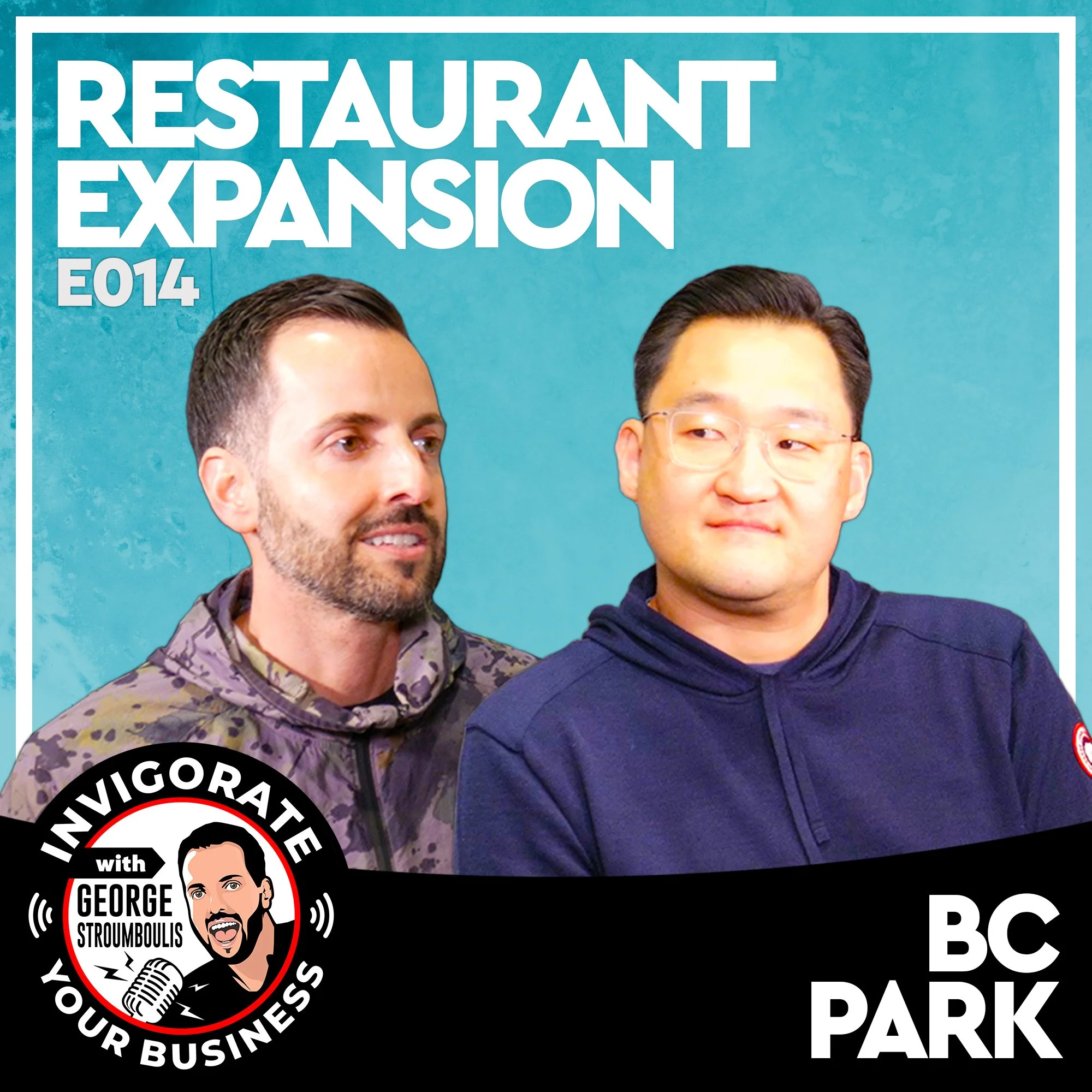
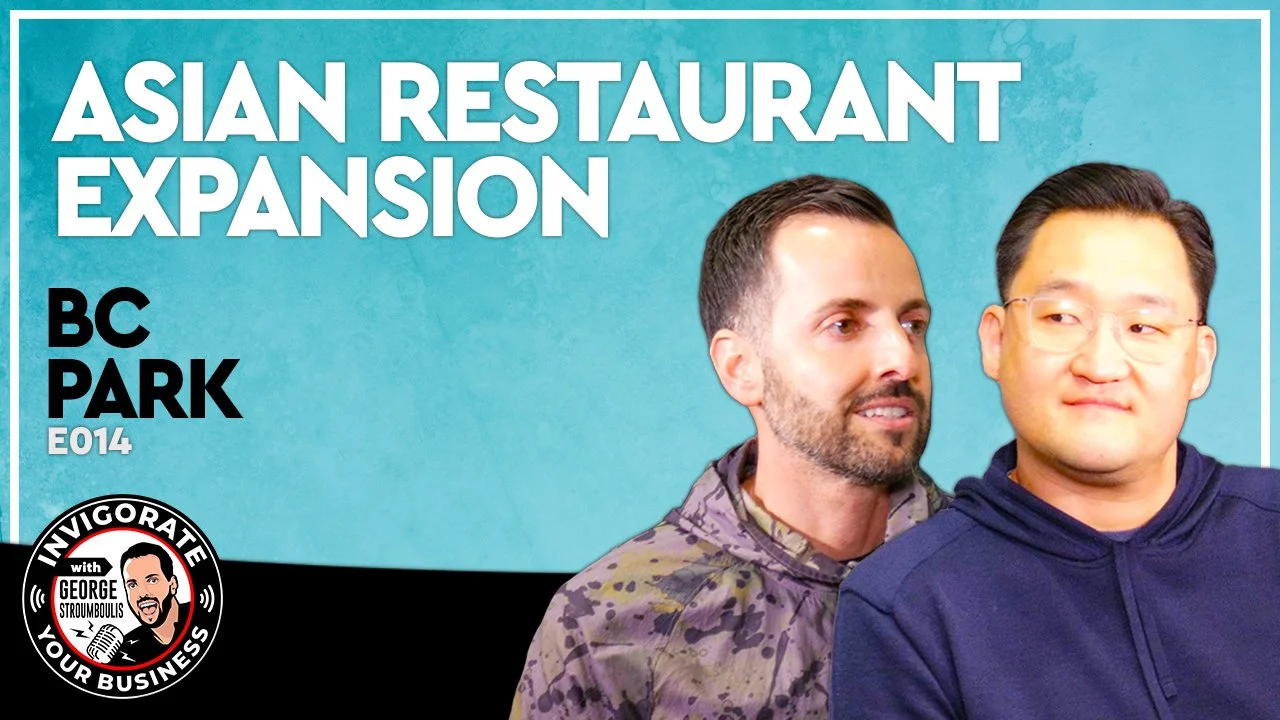
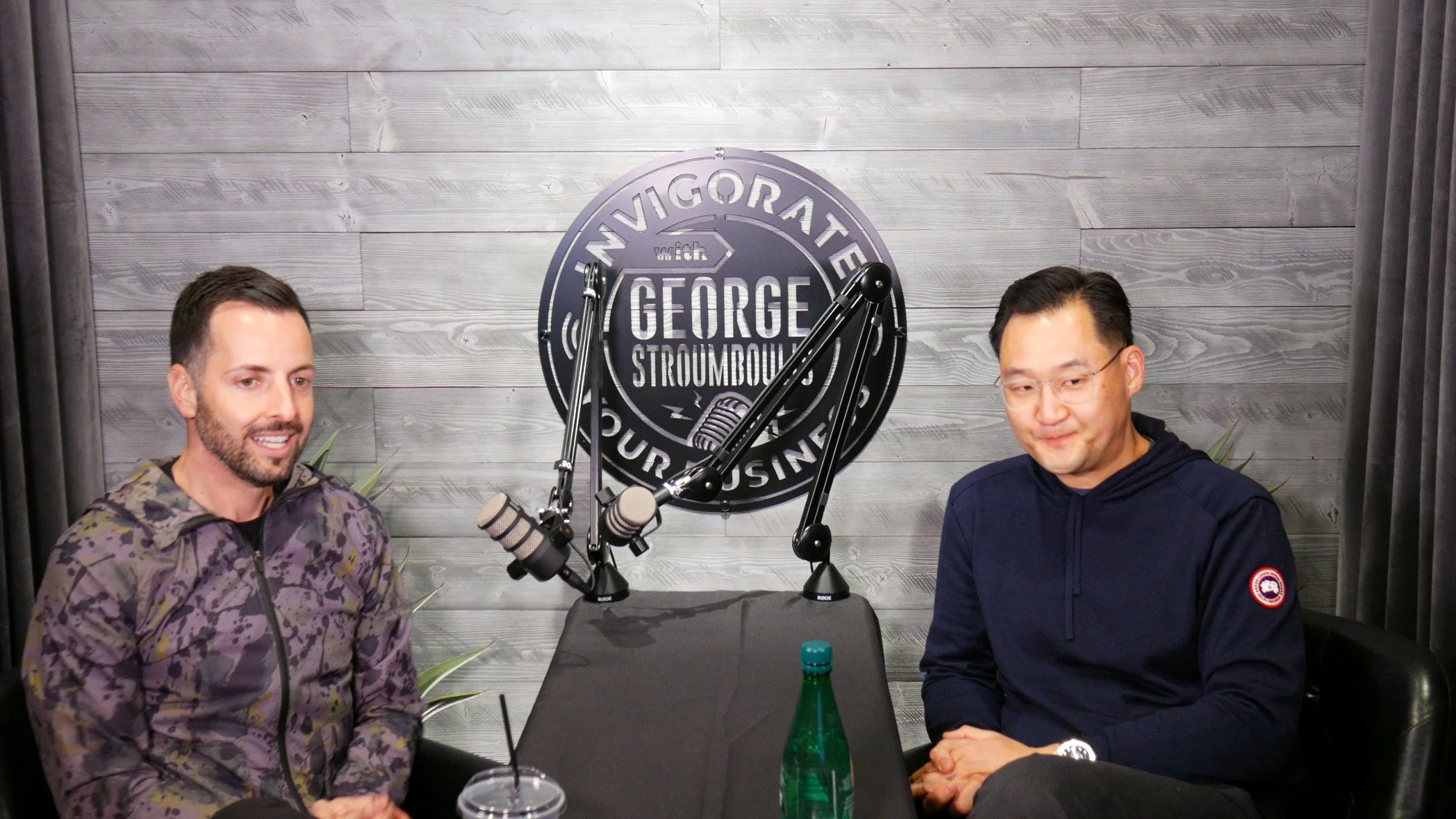
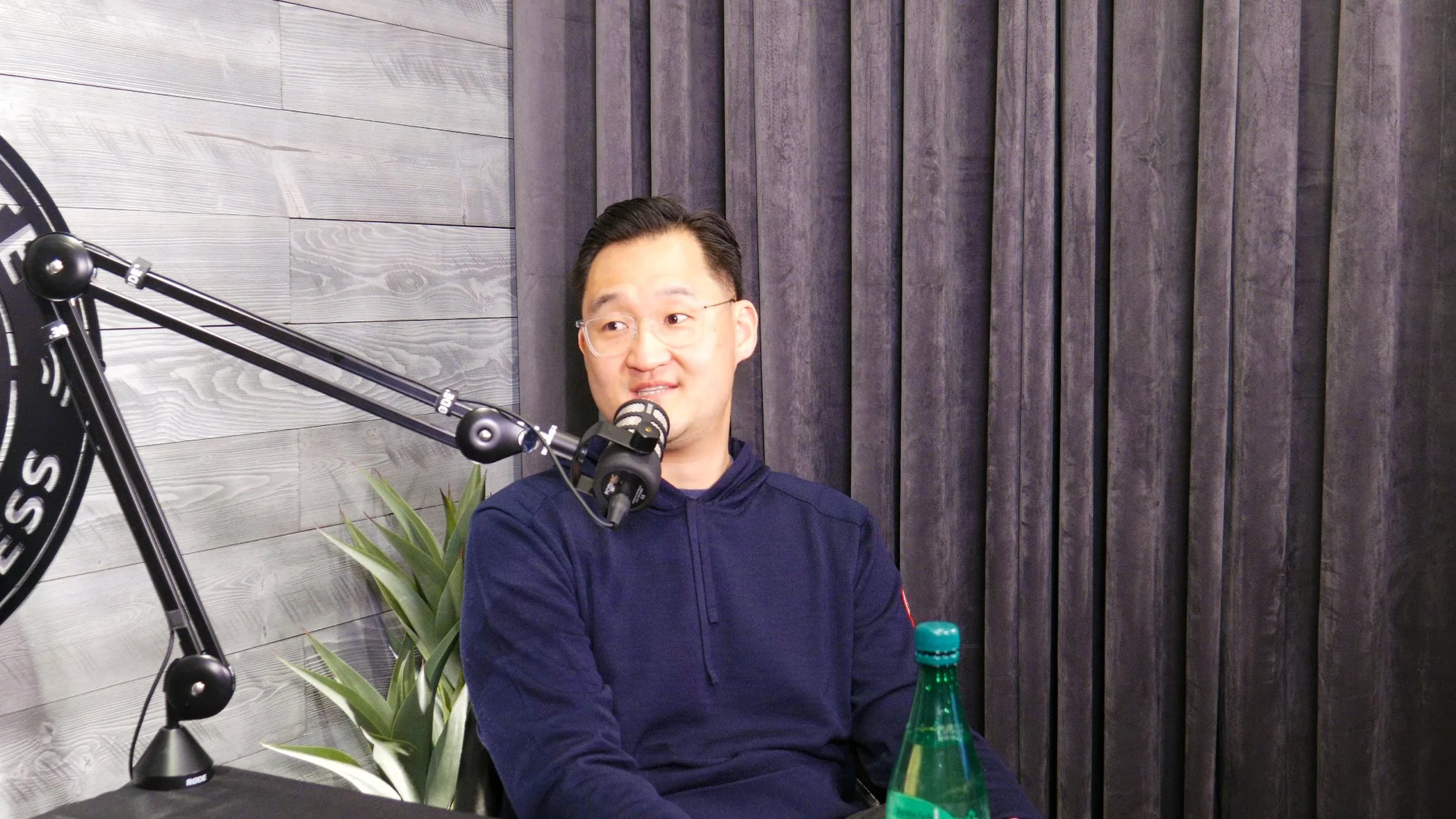
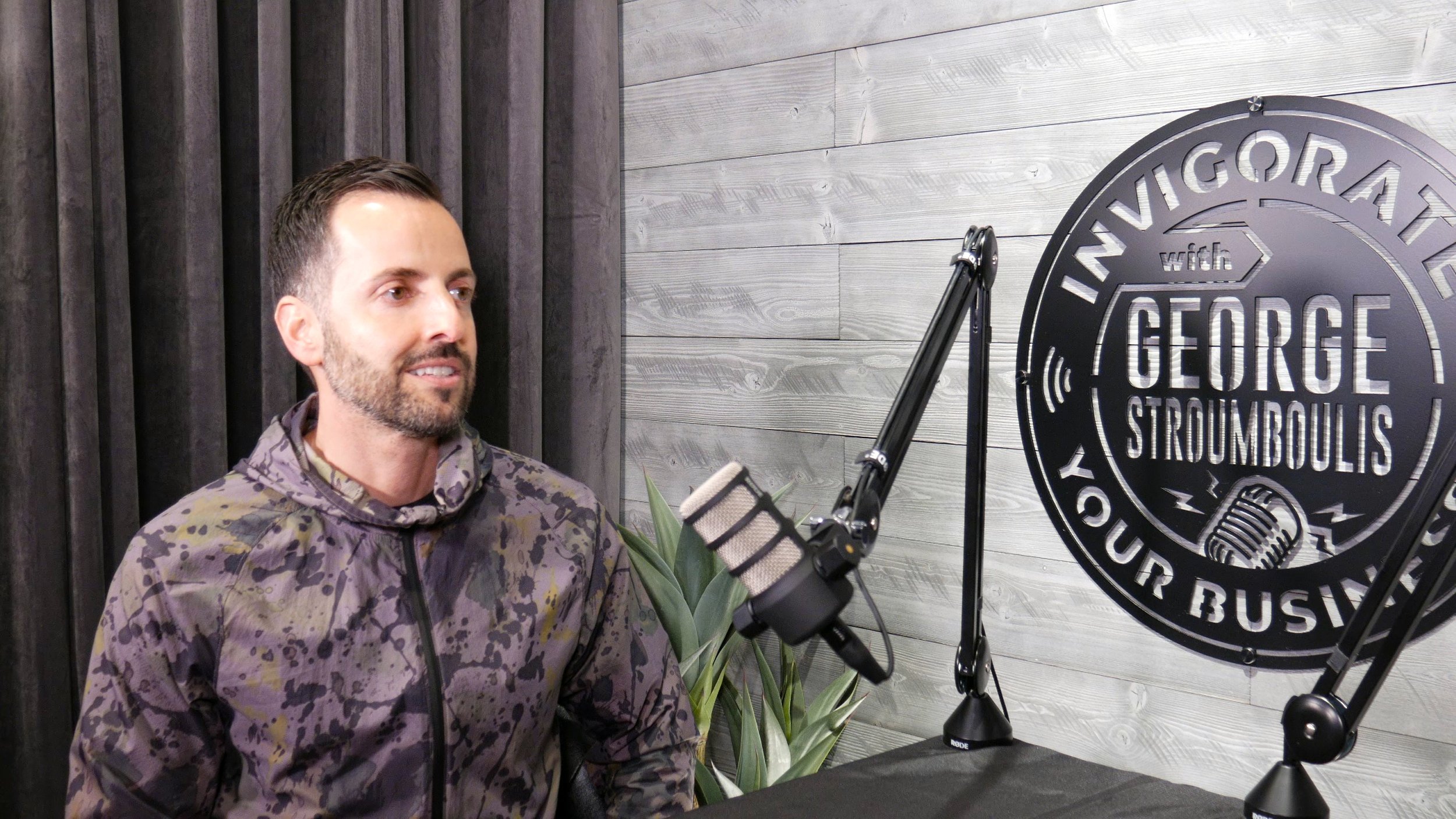
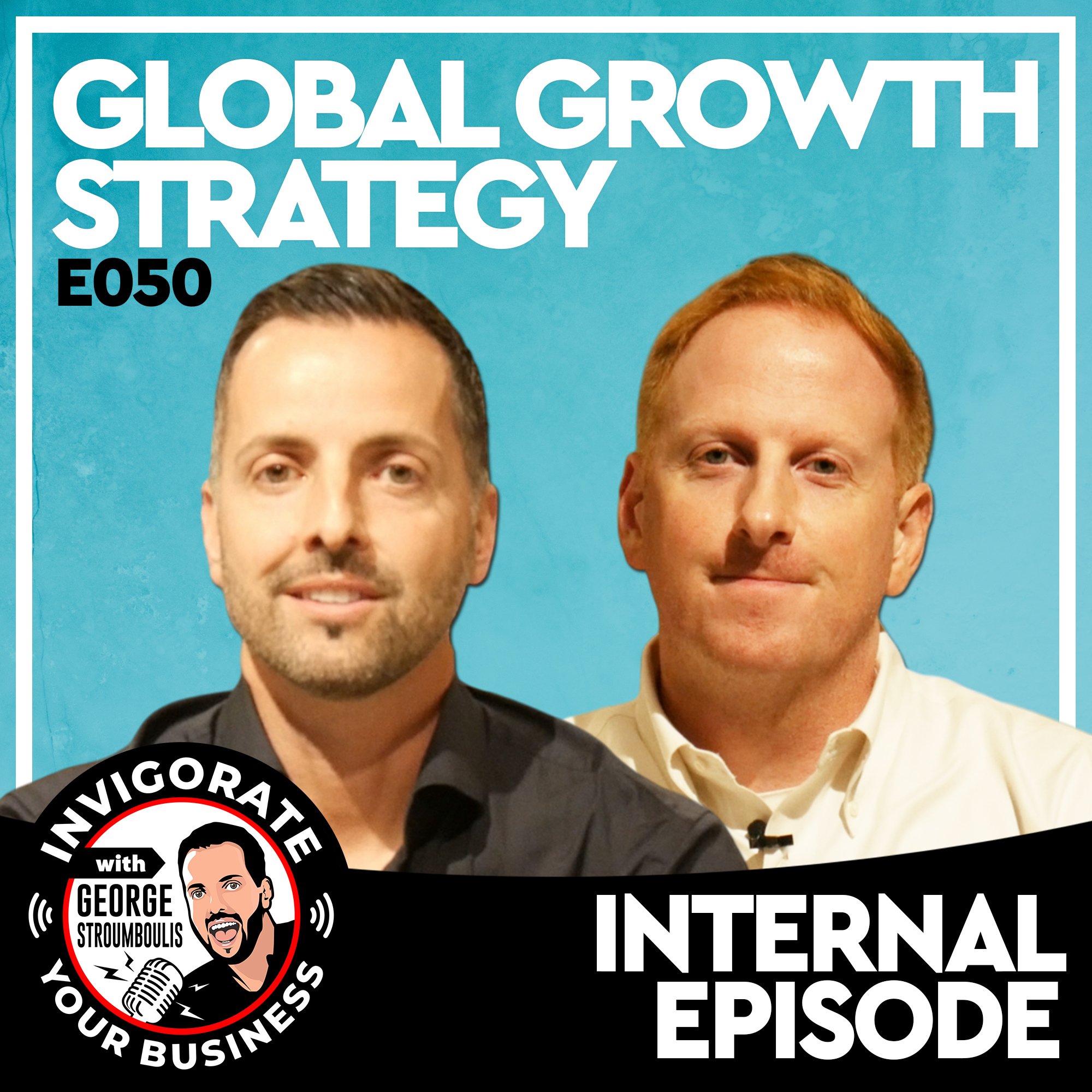


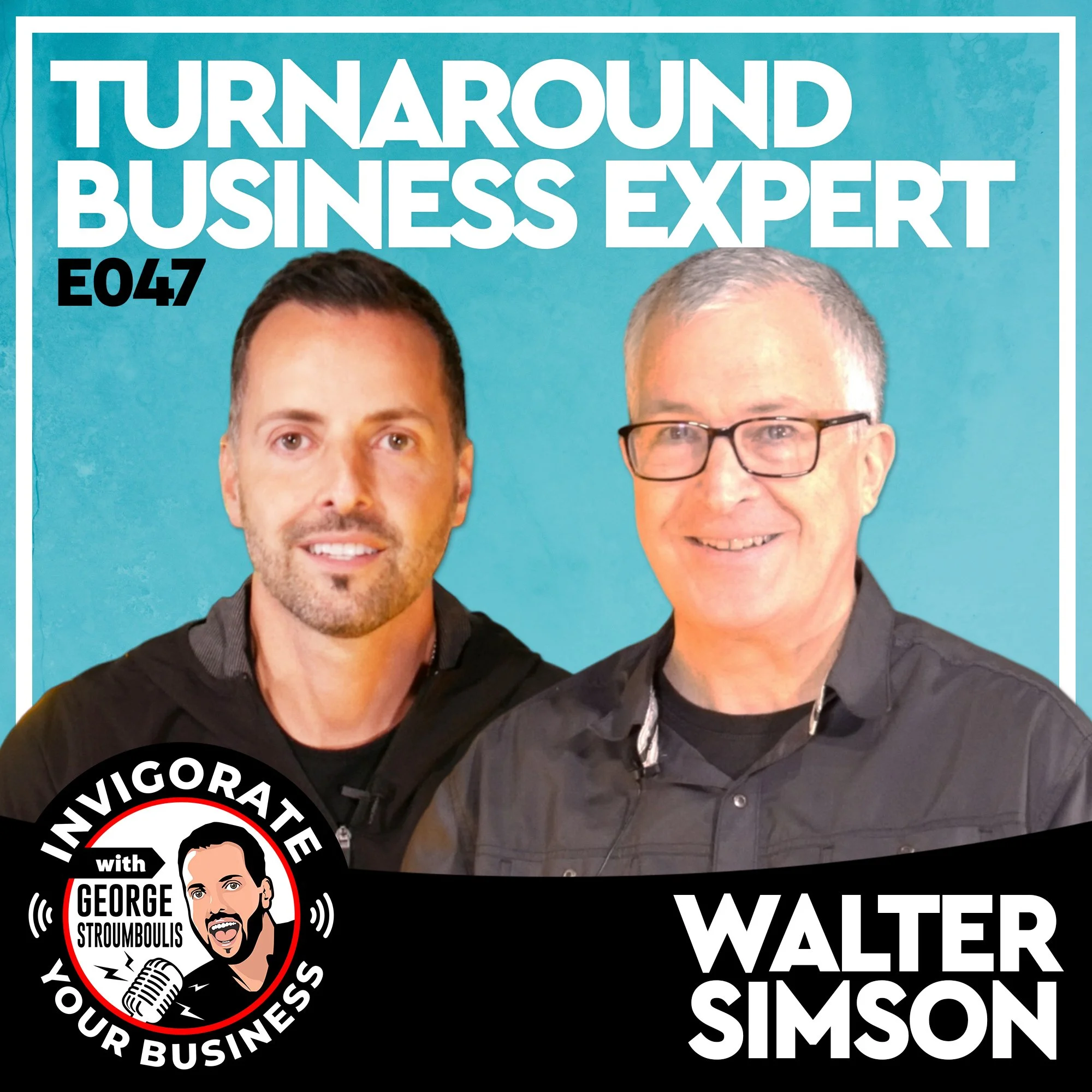
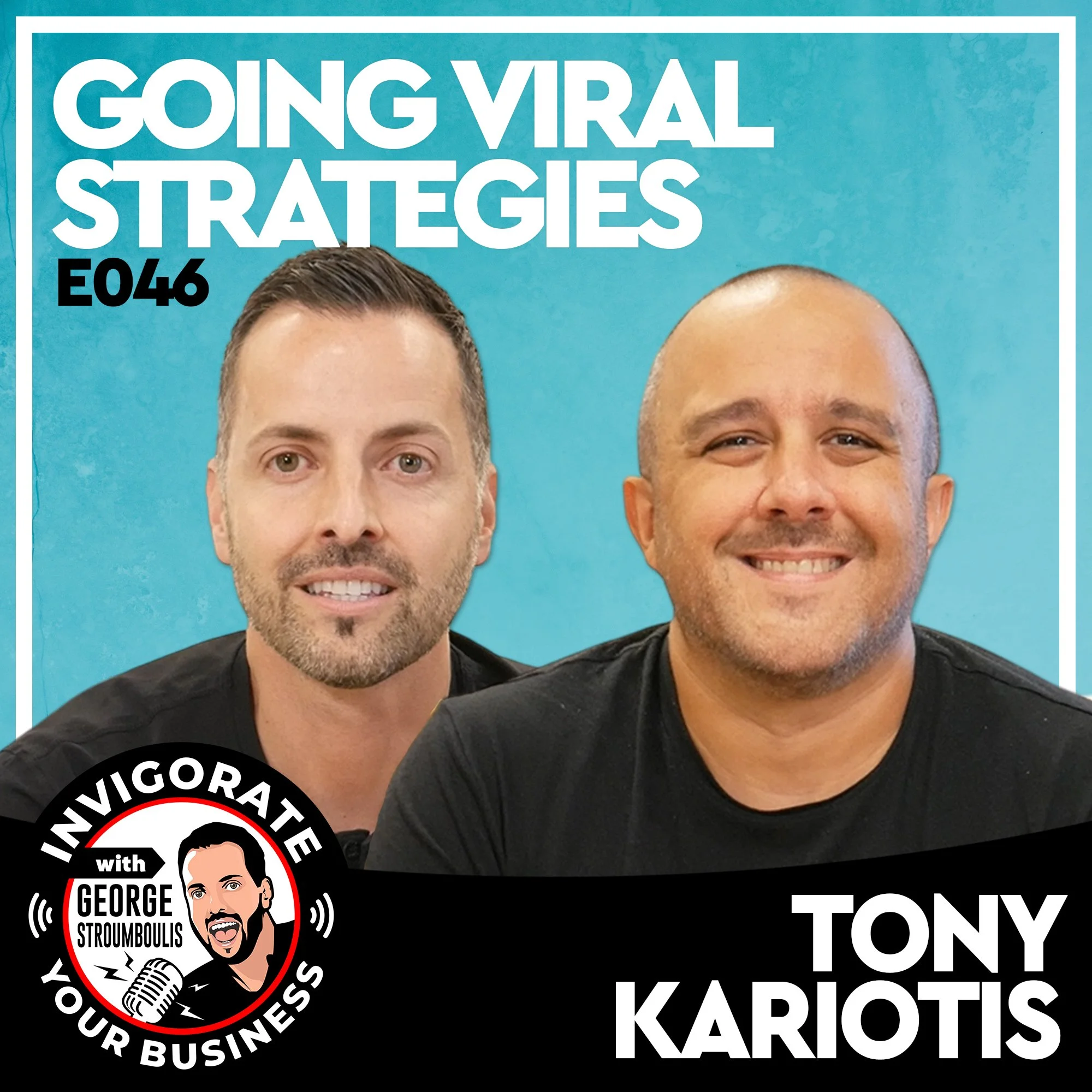

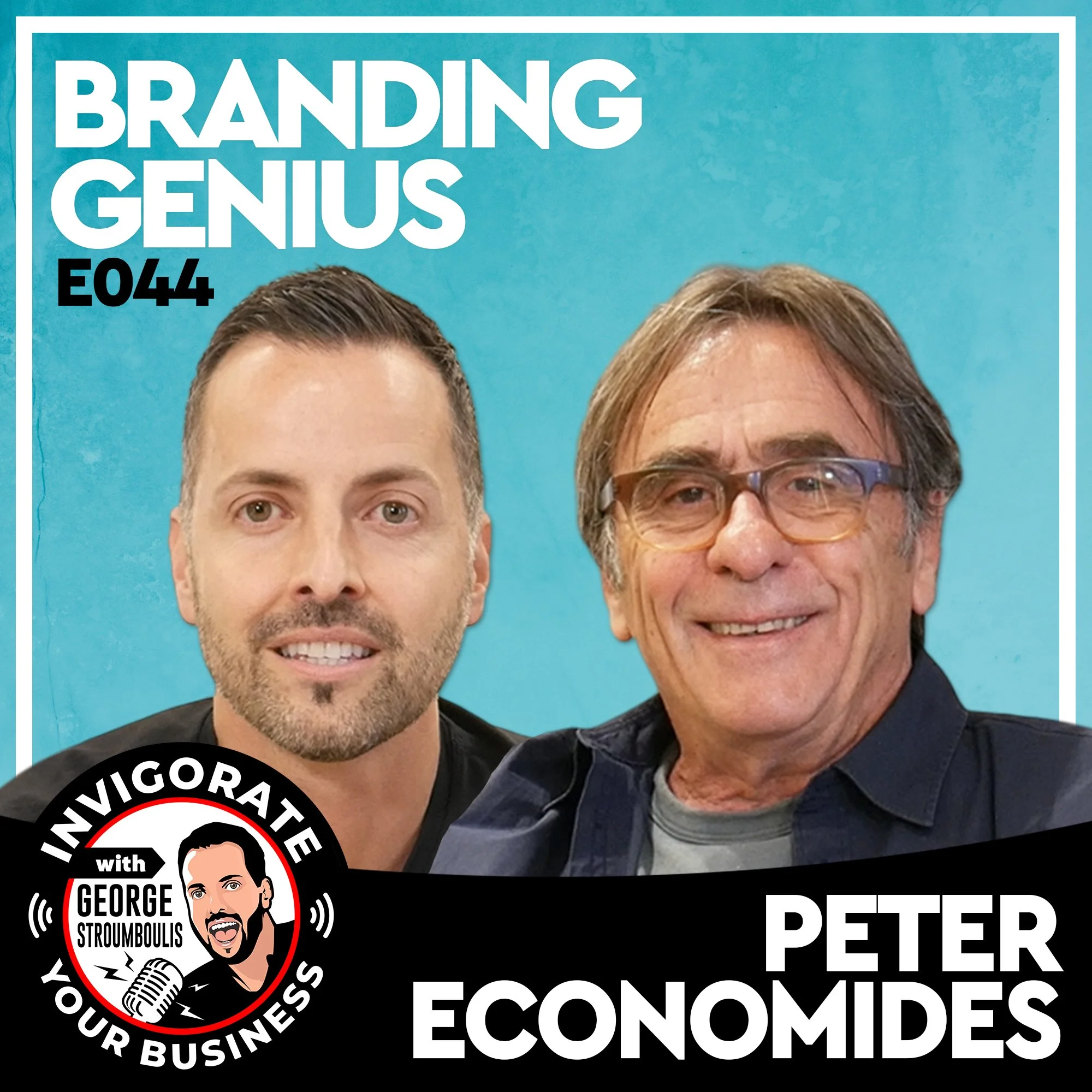
George Stroumboulis sits down with Jim Sogotis in Newport Beach, California on the Invigorate Your Business Podcast to talk about all things financial markets, investments, hedge funds, mutual funds, financial advice and so much more.